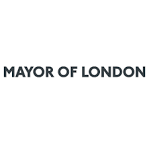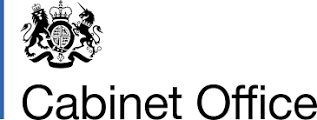PRESS RELEASE : Mayor calls for emergency Government investment as 343,000 London families living in social housing below minimum standards [December 2022]
The press release issued by the Mayor of London on 9 December 2022.
Mayor calls for emergency Government investment as 343,000 London families living in social housing below minimum standards
- Latest available figures show 43 per cent of London’s social housing – approximately 343,000 social homes – do not meet the current Decent Homes Standard and an energy efficiency rating of EPC band C.
- This is on top of severe problems in the private rented sector.
- Government funding to bring social housing up to the Decent Homes Standard was entirely withdrawn in 2016.
- Following the tragic death of toddler Awaab Ishak, the Mayor says there is urgent need for the Government to act and provide social landlords with funds to ensure homes meet minimum standards.
- Data reveals the cost of addressing non-decent homes and improving energy efficiency to keep social housing warm across the capital is approximately £4 billion. [1]
- Mayor warns that we risk more tragic deaths and illnesses if standards are not improved and the Government fails to invest and provide greater clarity on regulatory standards.
The Mayor of London, Sadiq Khan, has today issued a stark warning about the consequences of the Government failing to provide emergency investment to bring homes up to higher standards, and penalise failing social housing landlords.
The call to make all social housing warm and safe follows the tragic case of two-year old Awaab Ishak, who died following exposure to mould in his social housing flat in Rochdale. The Mayor is fearful we could see such terrible cases in London if the Government does not act.
City Hall analysis shows that around 43 per cent of London’s social housing – approximately 343,000 homes – needed improvements to meet the current Decent Homes Standard [2] and reach energy efficiency compliance (Band C EPC). [3]
Homes that fail to meet the Decent Homes Standard include any home with the most serious hazards to health. These are known as ‘Category 1 HHSRS hazards’ and can include damp and mould, excess cold, or severe infestations of pests and vermin. [4]
While significant headway was made between 2004 and 2014 to improve homes under the Decent Homes Standard, progress has stalled since Government funding was entirely withdrawn in 2016 and the target of 100 per cent compliance with the Decent Homes Standard has never been met.
The Mayor believes that without a long-term investment strategy to address the social housing crisis, the Government will even fail to meet its own target of halving the number of non-decent homes by 2030, prolonging the time that tenants are forced to live in dangerous conditions which could potentially lead to more awful deaths like Awaab’s.
City Hall analysis shows that investment to remove serious health and safety hazards from London’s homes pays for itself after 10 years, as reducing illness and disability caused by poor housing creates savings in NHS expenditure. [5]
The Mayor is calling for the Government to match the regulatory measures in the Social Housing Regulation Bill, which is currently before Parliament, by introducing reforms that will rapidly improve standards in the sector. This includes investing alongside social landlords to improve the quality and energy efficiency of homes and providing greater clarity on the regulatory standards which housing providers must meet. Doing so will accelerate upgrades for Londoners, saving tenants on average 20 per cent on their energy bills. [6]
The Mayor’s new £4bn 2021-26 Affordable Homes Programme already requires higher standards on design, safety and environmental performance for new homes than those funded outside London.
Sadiq has warned London’s affordable housing providers that they could lose access to funding if they fail to maintain their properties at high standards, an example since followed by Government nationally. [7]
The Mayor of London, Sadiq Khan, said: “The heart-breaking case of Awaab Ishak shows the real-life consequences of unacceptably substandard housing.
“I am determined that we must not see more tragic cases like this, which is why I’m calling on the Government to take responsibility.
“I’m pleased to see the Government is following my lead in restricting funding to underperforming social landlords, but much more needs to be done to ensure no child or family has to live in social housing that is cold or unsafe.
“That is why we need to see emergency action from ministers to deliver higher standards, which must include providing additional funding for social landlords.
“The Government needs to put a system in place that ensures people’s homes are proactively inspected so that problems are spotted before they become serious or even, as we’ve seen, deadly.
“Proper investment by the Government to improve the standard of social housing will be vital to ensuring we can continue to build a better, fairer and safer London for everyone.”
Darren Hartley, Chief Executive of TAROE Trust, said: “Whilst we welcome the legislative reforms that are being pushed through Parliament to improve standards, introduce proactive regulation and increase landlord accountability, it’s a travesty of social justice that children in London and across England in 2022 continue to live in damp, cold and unhealthy homes. Standards need to be raised further and landlords need to be held to account for failure to meet those standards. Additional funding from Government is also needed to ensure landlords can deliver on meeting even those minimum standards, accelerate investment programmes and ensure more lives are not unnecessarily lost.”


